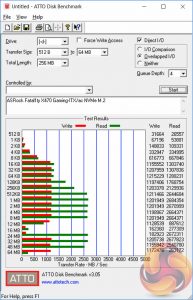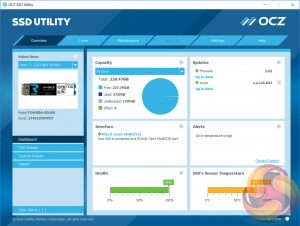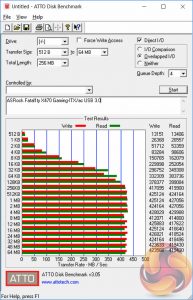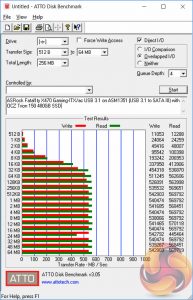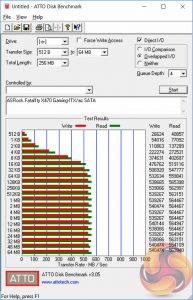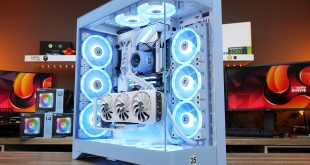ATTO Disk Benchmark
The ATTO disk benchmark is a Windows-based utility for testing storage performance of any storage drive or controller. We use the default benchmark setup.
M.2 PCIe Performance
For M.2 testing we use a Toshiba OCZ RD400 256GB M.2 PCIe NVMe SSD.
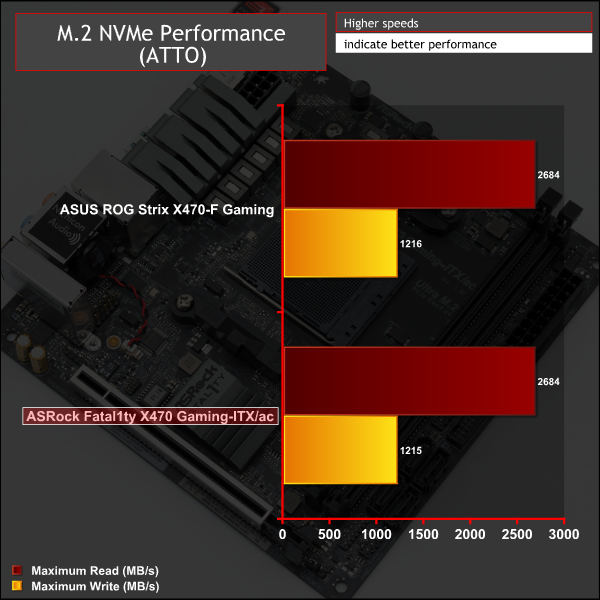
M.2 performance on this motherboard facilitates the maximum the test drive is capable of, however, the lack of M.2 cooling means thermal throttling does happen after just a couple of minutes. M.2 cooling is something ASRock could have considered given we've seen it before on other mini-ITX motherboards, such as the Gigabyte Z370N-WiFi.
USB Performance
We test USB 3.0 and 3.1 performance using a pair of Transcend SSD370S 512GB SSDs in RAID 0 connected to an RaidSonic Icy Box RD2253-U31 2-bay USB 3.1 enclosure powered by an ASMedia ASM1352R controller.
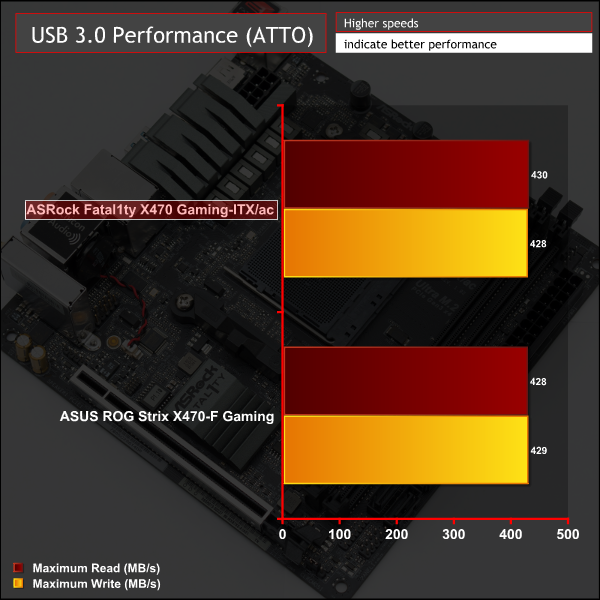
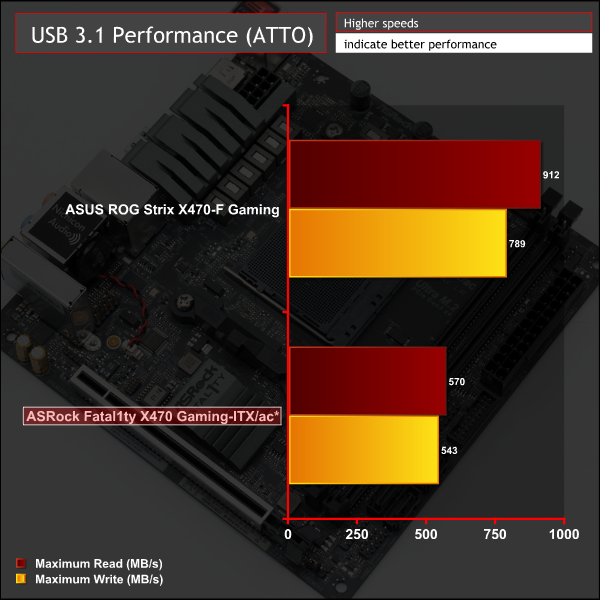
USB 3.0 performance was fairly typical for both X470 motherboards, though about 30-35MB/s lower than KitGuru observed on Intel's 300-Series.
For the ASRock X470 ITX motherboard we had compatibility issues between its only USB 3.1 Type-A port (via the AMD X470 chipset controller) and the ASM1352R RAID box and thus we were unable to get results on our standard test equipment. It proved impossible to get to the bottom of this issue and we were not able to get a single successful benchmark run despite trying a second ASRock motherboard, a different ASRock ASM1352R based RAID board, a fresh install of Windows 10, numerous UEFI versions, different drivers and AMD firmwares and many different power and BIOS options.
We did manage to test with a single USB 3.1 (ASM1351) to SATA device with one OCZ Trion 150 480GB SSD and achieve speeds faster than USB 3.0 just to validate the port was functioning correctly.
On the ASUS X470-F motherboard, we were only able to test the USB 3.1 port using the ASM1142 controller, not the front panel port using the X470 chipset controller, thus it remains to be determined if this is a motherboard-specific or chipset-specific compatibility problem. Similarly USB 3.1 performance on Intel 300-series motherboards was better than the ASUS X470-F to the tune of an extra 150MB/s.
SATA III 6Gbps Performance
For SATA 6Gbps testing we use an OCZ Trion 150 480GB SSD.
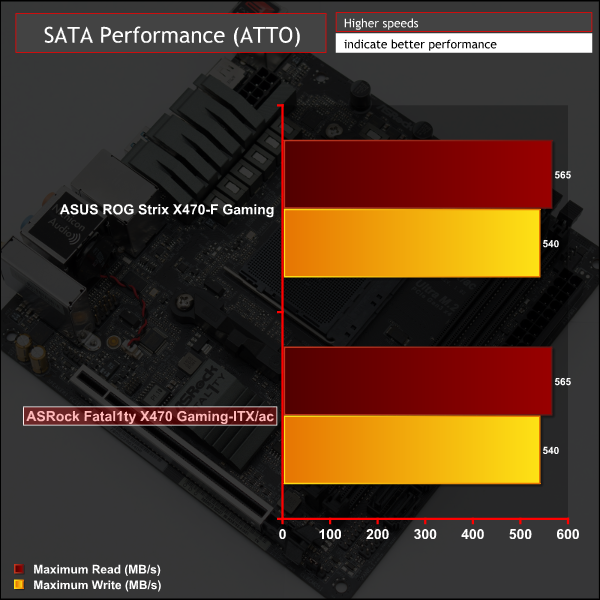
SATA III performance was as expected.
Audio
Rightmark Audio Analyser is a freeware benchmarking utility designed to objectively test the performance characteristics of audio solutions. We setup a line-in line-out loop and execute the record/playback test before generating the results report you see below. A sampling mode of 24-bit, 192 kHz is tested where available. If unavailable the closest alternative operating mode available is used and clearly marked.
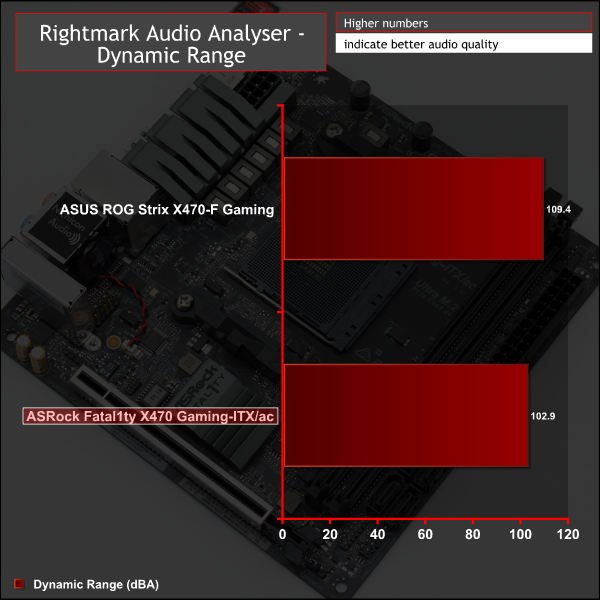
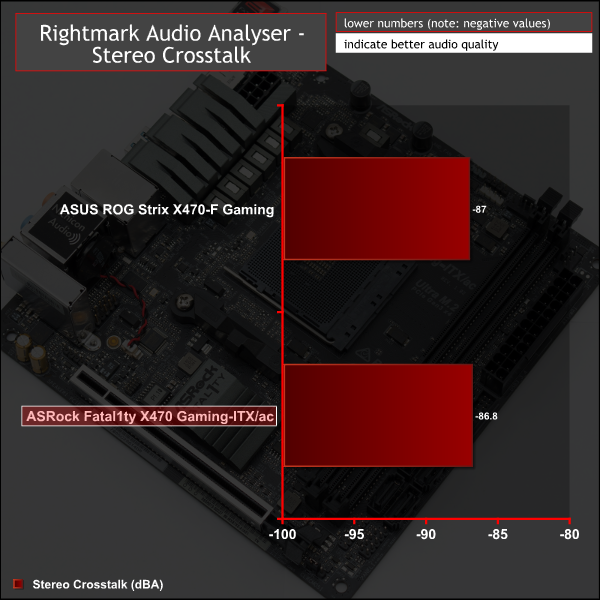
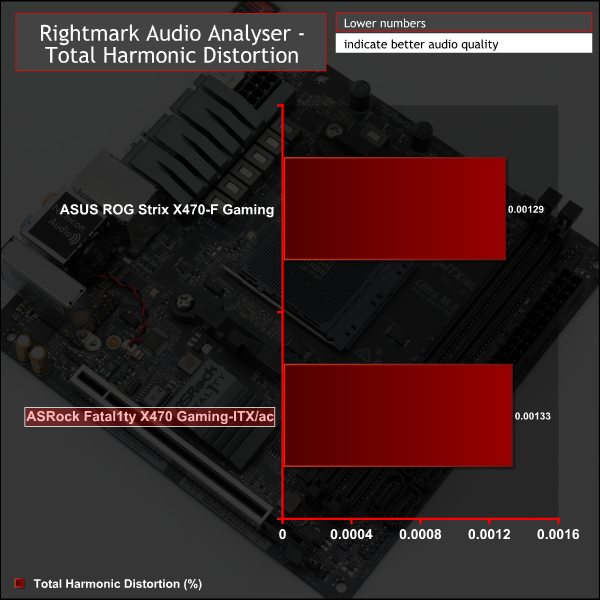
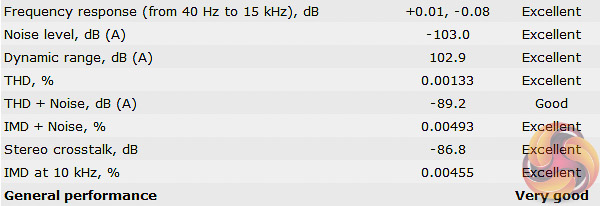
The performance is in line with what we've seen from other Realtek ALC1220 codec based motherboards including Z370 motherboards using the same codec. The performance for the ASRock X470 mini-ITX motherboard was a little bit worse than the ASUS X470-F motherboard, probably reflecting the higher congestion on the PCB and fewer audio capacitors in use due to space constraints.
Be sure to check out our sponsors store EKWB here
 KitGuru KitGuru.net – Tech News | Hardware News | Hardware Reviews | IOS | Mobile | Gaming | Graphics Cards
KitGuru KitGuru.net – Tech News | Hardware News | Hardware Reviews | IOS | Mobile | Gaming | Graphics Cards


